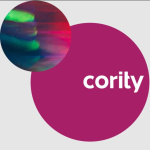Optimize Your Operations with Sustainability-Focused Supply Chain Management Software
Managing a supply chain sustainably has evolved from being a competitive advantage to a critical requirement. Sustainable Supply Chain Management Software helps companies track and improve environmental, social, and governance (ESG) practices across their supply chains. From monitoring carbon footprints to ensuring ethical sourcing, this software enables businesses to enhance transparency, meet regulatory standards, and build trust with customers and investors who care about sustainable practices.
Why Choose Supply Chain Sustainability Software?
Today’s marketplace is full of consumers who care about a brand’s impact on the environment and society. Sustainable supply chain software helps companies not only meet compliance requirements but also drive meaningful change. By actively monitoring the impact of their supply chains, companies can reduce emissions, optimize resources, and verify that suppliers meet ethical and environmental standards. In a world where “greenwashing” is a growing concern, supply chain software provides the hard data to back up sustainability claims.
Who Should Use This Software?
This software provides value across multiple teams and functions:
Supply Chain Managers overseeing day-to-day operations
Procurement Teams focused on sourcing materials responsibly
Compliance and Risk Managers managing regulatory requirements and disruptions
Sustainability Leads tracking ESG data across all suppliers
Executive Leadership supporting long-term sustainability and reputational goals
Top Features to Look For
Choosing the right Sustainable Supply Chain Software depends on selecting features that align with your sustainability objectives:
Transparency: Full transparency across the supply chain ensures companies can verify the origin of materials and confirm that ethical and environmental standards are met at each stage.
ESG Metrics Monitoring: Detailed tracking of environmental, social, and governance factors across suppliers offers a comprehensive view of the supply chain’s overall health.
Carbon and Emissions Tracking: Tools that allow companies to assess and reduce their environmental impact by calculating carbon output at different stages.
Risk and Compliance Alerts: Real-time alerts highlight potential issues, helping teams prevent compliance gaps and address disruptions before they escalate.
Supplier Collaboration Tools: Collaborative tools make it easier to set shared sustainability goals with suppliers, ensuring alignment across the supply chain.
Benefits
Investing in this type of software delivers multiple benefits. A transparent supply chain bolsters brand reputation by demonstrating responsible practices, which is especially important in sectors where consumers demand accountability, such as food, fashion, and technology. By proactively monitoring the supply chain, companies can identify and address risks before they become costly disruptions, reducing downtime and ensuring steady operations.
Sustainable practices often lead to cost efficiencies as well. By optimizing resource use and minimizing waste, companies can achieve significant savings. And with sustainability regulations growing stricter, automated compliance tracking simplifies reporting, helping companies stay in line with the latest standards without constant manual updates.
Emerging Trends in Sustainable Supply Chain Management
This field is advancing rapidly, with technology evolving to meet the demands of a greener world.
Blockchain for Traceability: Blockchain is transforming supply chain transparency, allowing companies to create an unchangeable record of each product’s journey from origin to final destination. This transparency is invaluable in industries with high sourcing standards, as it allows businesses to verify ethical practices and environmental impact.
AI and Predictive Analytics: AI and predictive analytics are reshaping supply chains by identifying trends and forecasting potential issues. This enables companies to act proactively, ensuring resources are used efficiently while minimizing disruptions.
Circular Supply Chains: A growing number of companies are moving towards circular practices, where resources are reused and recycled instead of disposed of. Software that supports these circular approaches is invaluable for businesses committed to “zero-waste” models.
Choosing the Right Software for Your Business
To select the best Sustainable Supply Chain Management Software, start by clarifying your sustainability goals. Whether your focus is on emissions reduction, ethical sourcing, or overall resource optimization, knowing your priorities will help narrow down your options. Next, check for software that integrates seamlessly with your current systems, such as ERP or inventory management tools. Smooth integration ensures that all data remains centralized and accessible, streamlining operations.
Look for real-time monitoring capabilities, especially if your supply chain involves multiple stages and locations. Real-time insights help you catch and address issues as they arise, keeping your supply chain on track. Since sustainable practices often involve collaboration, a user-friendly interface is essential to encourage engagement across teams and suppliers. Good vendor support, including onboarding and training, can make a huge difference in helping your team fully leverage the software’s capabilities.
Pricing Models to Consider
Pricing for Sustainable Supply Chain Software varies. Many providers offer subscription-based plans, billed monthly or annually, based on user count or feature access. For companies tracking a high volume of suppliers, usage-based pricing may be ideal, scaling according to data volume or the complexity of tracking needs. Large organizations with highly customized supply chain requirements may opt for bespoke enterprise pricing, which can be tailored to specific sustainability goals.
Questions to Ask Vendors Before You Buy
How does the platform support ESG reporting and compliance?
Can the software handle multiple supply chain stages across different locations?
What options are available for integrating existing systems and data sources?
Does the software support real-time monitoring and traceability?
What kind of onboarding and training support is available?
Sustainable Supply Chain Management Software is more than a tool; it’s an investment in responsible business growth and long-term resilience. The right solution will strengthen your brand, streamline operations, and help meet the demands of an increasingly eco-conscious market.









